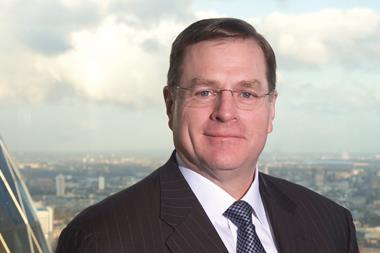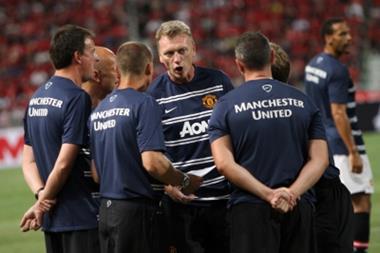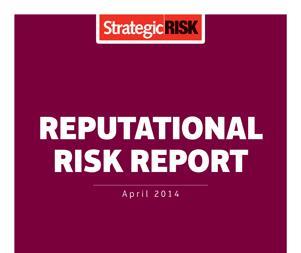As one of the best known brands in the world, Manchester United understand better than most the importance of projecting the right image to both supporters and investors
In 2013 Manchester United announced record annual revenues of £363.2m, a rise of 13.4% from the previous year.
While this is no insignificant sum, when compared with the turnover of other major business, it puts Manchester United firmly in the mid-market bracket.
And herein lies a commercial paradox, as it is difficult to think of any organisation, even those corporate giants that measure turnover in multiple billions, which has a brand that is recognised in more places around the world.
Boasting 659 million followers globally who follow their fortunes on a daily basis, Manchester United are the most popular football team in the world by some considerable margin.
As such, protecting and enhancing the reputation of the Manchester United brand and the organisation’s personnel is a key priority for the club and an area in which Aon expertise is valued keenly.
Manchester United Group Managing Director Richard Arnold believes that the reputational issues faced by the club mirror those of any other major business but it is the way in which they are magnified that gives this risk such a unique scale.
“One of the things we find is that actually the issues we face are the same as everybody else,” he says, “but they are just much more intense because at the end of a game you know how you did against a competitor, there’s a ranking table, hundreds of millions of people are watching each game – it is very visible for us, but there is no difference from other businesses.”
The behaviour of the team both on and off the pitch is an important area in which the reputations of football clubs can be enhanced or severely tarnished.
Manchester United players are assessed before they join the club not only for their ability with a football but also in terms of how they are likely to fit in with the ethos of the organisation.
“One of the things that is most important is the assessment of character that goes in when we are looking at players to acquire,” says Phil Townsend, Director of Communications, Manchester United.
“There is a concept of a Manchester United player – what does a Manchester United player do on the field? How does a Manchester United player behave off the field? And clearly while we don’t get it right every time it is a major part of what we do in terms of bringing players into the club.”
It is a strategy which is largely successful. The advent of 24-hour news and the proliferation of social media puts players under more scrutiny than ever before. Few moments are private for this group of instantly recognisable, wealthy sports stars. Yet while any transgressions, no matter how minor, make headline news for a sensation-hungry tabloid press, Manchester United manage to keep their players under the radar most of the time.
Arnold says the behaviour of the players more than stands up to scrutiny against their peer group.
“If you look at the stats for an average group of 18- to 30-year-old guys [and compare against the Manchester United squad]: no divorces, almost no alcohol related issues, certainly no drug related issues, they are certainly a very disciplined group of people and we are lucky to deal with that,” he says.
On rare occasions where issues do arise like this, he says, it is another area where the benefits of the Aon partnership can be seen providing assistance “in terms of supporting employees through all of those issues”.
Aon’s experience with its many thousands of clients around the world brings with it a depth of knowledge and understanding around issues such as reputation and the work of executives such as Stephen Cross, chairman of Aon Global Risk Consulting and his team which provides the essential detail.
“We do a lot of research with our clients globally and in the Global Risk Management Survey which we conducted in 2013, reputation risk was listed globally as the fourth largest concern of our client group,” Cross says.
“Aon’s view on this is that reputation is an outcome of a series of different events that can trigger that – whether it is harassment, high turnover of employees, unethical behaviour by a board, it could be anything – but it is really how you handle reputation which is important and this is an area in which Aon does a lot of work to help its clients.
“It’s a changing world again – social media drives the world we are in. What we would call an operational incident can become a reputational incident because of the speed of social media. Everything that happens is caught on a cell phone and can be put on YouTube and be around the world in seconds. We now have a 24-second media feed compared to how it once was historically.”
The volume of data and research which Aon can access is enormous and Cross offers an interesting parallel with Manchester United in terms of his future vision around reputational protection.
“I have a view on what I would like Aon to aspire to – and that is for Aon to become to data what Manchester United is to football,” he says. “That we have so much access to so much data that we can draw conclusions on how to react to reputation issues as and when they occur, because they do occur and they occur quite regularly.”
And when they do, the damage can be rapid and catastrophic if not handled correctly, particularly for a listed company such as Manchester United, as Aon’s global chief marketing and communications officer, Phil Clement points out.
“One in five companies lose up to 20 per cent of their market cap every five years to a reputational issue,” Clement says. “With reputational risks there are a lot of things that you can do to show that you are prepared. One of the big things that you see in the trend on reputational risk is if the company responds appropriately within 24 hours, even the market cap can be back within six months. If there is no appropriate response within 48 hours at the most then it is something like nine years before you get the market cap back. So these risks are dramatically intense for all companies.”




















No comments yet